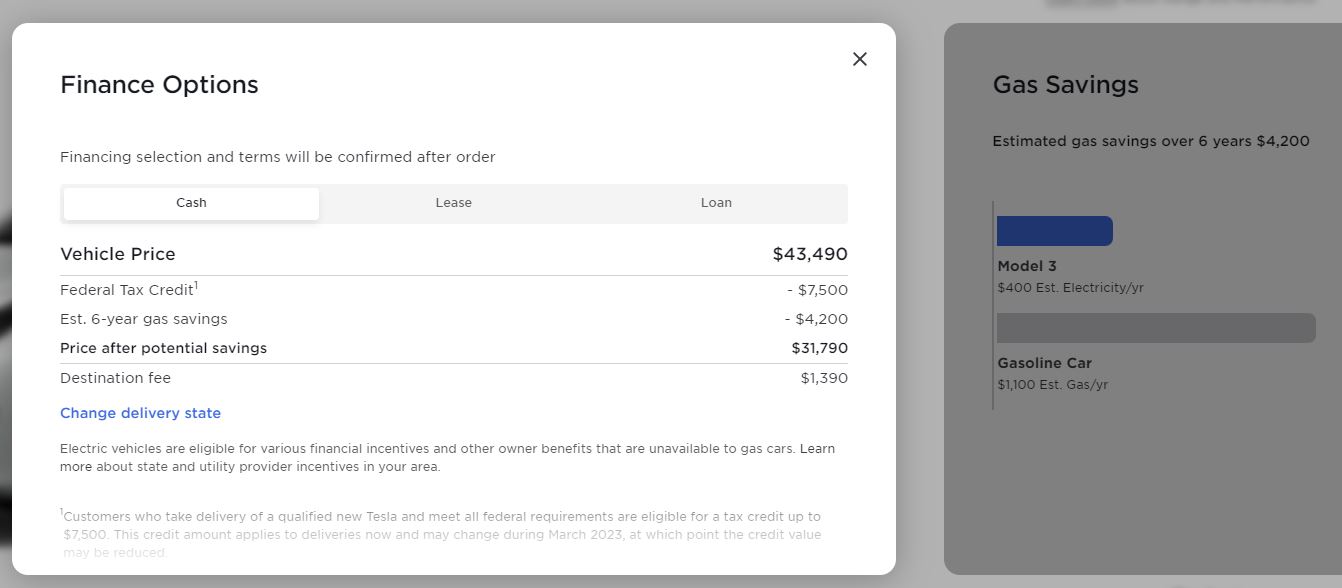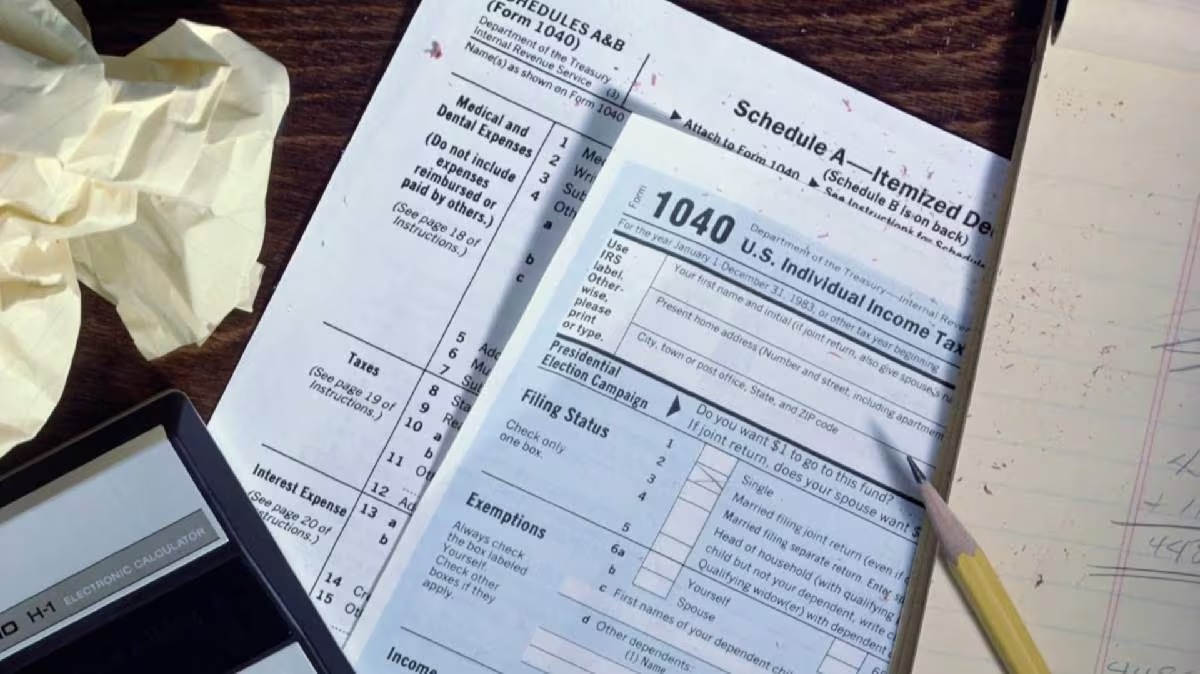Home>Finance>How Long May A Child Continue To Get Social Security Benefits?


Finance
How Long May A Child Continue To Get Social Security Benefits?
Published: November 24, 2023
Find out how long a child can receive Social Security benefits and ensure their financial security. Discover the key considerations for ongoing support in finance.
(Many of the links in this article redirect to a specific reviewed product. Your purchase of these products through affiliate links helps to generate commission for LiveWell, at no extra cost. Learn more)
Table of Contents
- Introduction
- Eligibility for Social Security Benefits for Children
- Social Security Benefits for Children with Disabilities
- The Age Limit for Receiving Social Security Benefits as a Child
- Graduation from High School and Social Security Benefits
- Marital Status and Its Impact on Social Security Benefits for Children
- Termination of Social Security Benefits for Children
- Conclusion
Introduction
When it comes to Social Security benefits, many people mistakenly assume that they are only available to retirees or individuals with disabilities. However, Social Security benefits are also available for dependent children of workers who are eligible for these benefits. These benefits can provide crucial financial support to children until they reach a certain age or meet specific criteria.
In this article, we will explore the topic of Social Security benefits for children in-depth. We will discuss the eligibility requirements, the duration for which children can receive benefits, and the factors that may affect the continuation of these benefits. Whether you are a parent seeking information or an individual curious about how Social Security benefits work for children, this article aims to provide comprehensive insights to help you better understand the topic.
It is important to note that the Social Security Administration (SSA) oversees the distribution of Social Security benefits and sets the guidelines for their eligibility and duration. These guidelines can vary based on various factors such as the child’s age, disability status, education, and marital status. Understanding how these factors influence the duration of benefits is crucial to ensure that children receive the support they need.
Now, let’s delve into the details of how long a child may continue to receive Social Security benefits and the various factors that come into play.
Eligibility for Social Security Benefits for Children
To be eligible for Social Security benefits as a child, certain criteria must be met. The child must be the dependent of a worker who is either retired, disabled, or deceased and was eligible for Social Security benefits. The child must also be unmarried and be under the age of 18, or under the age of 19 if they are still a full-time student enrolled in a secondary school (high school).
If the child has a disability that began before the age of 22, they may also be eligible for Social Security benefits as an adult child with a disability. This can extend their eligibility past the age of 18 or 19, depending on their circumstances.
It is important to note that the child must be a biological child, an adopted child, or a stepchild of the eligible worker. In some cases, grandchildren and step-grandchildren may also be eligible for benefits if certain additional requirements are met.
In addition to these eligibility criteria, there are income limits that may impact a child’s eligibility for Social Security benefits. If the child has earnings from work, their income may affect their eligibility for benefits. The Social Security Administration has specific rules and thresholds for how much a child can earn while still receiving benefits.
Furthermore, it’s worth mentioning that if a child’s parents are eligible for and receiving Social Security benefits, the child may receive benefits based on the parent’s record. This is commonly referred to as “dependent benefits” or “child’s benefits.”
Overall, meeting the eligibility criteria for Social Security benefits as a child is the first step in determining if a child is eligible to receive financial support from the Social Security Administration. Understanding these eligibility requirements is crucial for parents and guardians to ensure that their child can access the benefits they may be entitled to.
Social Security Benefits for Children with Disabilities
Children with disabilities may be eligible for Social Security benefits under the Supplemental Security Income (SSI) program. The SSI program provides financial assistance to children with disabilities who have limited income and resources. These benefits can help cover the costs of medical care, therapy, and other essential needs.
To qualify for SSI benefits, a child must have a physical or mental condition that severely limits their ability to function and has lasted, or is expected to last, for at least 12 continuous months or result in death. The child must also have limited income and resources, as determined by the Social Security Administration’s guidelines.
The evaluation process for disability benefits considers the child’s impairment and its impact on their day-to-day activities, mobility, and ability to learn. Medical evidence such as doctor’s reports, test results, and other relevant documentation is typically required to support the child’s disability claim.
It’s important to note that the Social Security Administration provides resources and support to help parents navigate the application process for disability benefits. This includes providing guidance on what documentation is needed and facilitating medical examinations or evaluations if necessary.
If a child is approved for SSI benefits due to their disability, the benefits will continue as long as the disabling condition persists and the child meets the eligibility requirements. Periodic reviews are conducted by the Social Security Administration to assess the child’s continued eligibility for benefits based on their disability status.
Receiving Social Security benefits can have a significant impact on the financial well-being of children with disabilities and their families. It can help cover the costs of specialized medical care, therapy, assistive devices, and other support services that are essential for their well-being and development.
Overall, Social Security benefits for children with disabilities through the SSI program aim to provide financial support and resources to help improve the quality of life for children who have significant impairments.
The Age Limit for Receiving Social Security Benefits as a Child
The age limit for receiving Social Security benefits as a child varies depending on the specific circumstances. In general, children can receive benefits until they reach the age of 18 or 19 if they are still enrolled full-time in a secondary school (high school).
Once a child reaches the age of 18, their eligibility for benefits is reassessed. If they have not yet graduated from high school, they can continue to receive benefits until they graduate or until two months after their 19th birthday, whichever comes first.
If a child has a disability that began before the age of 22 and meets the eligibility criteria for adult disability benefits, they may continue to receive benefits as an adult child with a disability. This can extend their eligibility past the age of 18 or 19, allowing them to receive ongoing support.
It is important to note that the age limit for receiving Social Security benefits as a child may also depend on other factors. For example, if a child is already receiving benefits through the Social Security Disability Insurance (SSDI) program due to their own disability, their eligibility may continue beyond the age of 18 or 19.
Once a child reaches the age where their eligibility for benefits ends, they may have the opportunity to transition to other forms of benefits or assistance programs. For example, if they have a disability, they may qualify for adult disability benefits through the SSDI program or Supplemental Security Income (SSI) benefits.
Understanding the age limit for receiving Social Security benefits as a child is crucial for parents and guardians to plan for the future financial needs of their child. It is important to stay informed about the specific requirements and options available to ensure a seamless transition and continuity of support as the child grows older.
Graduation from High School and Social Security Benefits
Graduation from high school plays a significant role in the continuation of Social Security benefits for children. As mentioned earlier, children can continue to receive benefits until they graduate from high school or until two months after their 19th birthday, whichever comes first.
This means that if a child is still enrolled full-time in a secondary school (high school) at the age of 18, they can continue to receive Social Security benefits until they graduate. However, once they graduate or reach the age of 19, their eligibility for benefits will end unless they meet specific disability-related criteria.
It’s important to note that the Social Security Administration may require proof of enrollment and periodic updates on the child’s educational status to ensure that they are still eligible for benefits. This helps to ensure that the benefits are being provided to children who are actively pursuing their education.
Additionally, if a child is unable to continue their education due to a disability, they may be eligible for adult disability benefits through the Social Security Disability Insurance (SSDI) program. The criteria for adult disability benefits are different from the criteria for receiving benefits as a child and typically require a more stringent evaluation of the disability and its impact on the individual’s ability to work.
It is crucial for parents and guardians to communicate any changes in their child’s education status, including high school graduation, to the Social Security Administration in a timely manner. Failing to report such changes can lead to overpayments of benefits and potential penalties or consequences.
Parents and guardians should also explore available resources and guidance provided by the Social Security Administration to ensure a smooth transition for their child after high school graduation. This may involve exploring other forms of financial assistance, vocational training programs, or work opportunities that align with the child’s abilities and goals.
In summary, graduation from high school marks an important milestone in the eligibility for Social Security benefits for children. Parents and guardians should be proactive in updating the Social Security Administration about educational status changes and seeking guidance for the transition to other forms of support if necessary.
Marital Status and Its Impact on Social Security Benefits for Children
The marital status of a child can have an impact on their eligibility for Social Security benefits. Generally, for a child to receive benefits, they must be unmarried. However, there are a few exceptions to this rule.
If a child marries while receiving Social Security benefits, their eligibility for benefits will typically end. Marriage is seen as an indication of independence and financial support from their spouse, which may negate the need for Social Security benefits.
However, there are certain circumstances where a child can still receive benefits even if they are married. This includes situations where the child marries another beneficiary of Social Security benefits, such as another child receiving benefits or a disabled individual receiving benefits based on their own work record. In these cases, the child’s marriage will not affect their eligibility for benefits as long as they meet the other requirements.
It is important to note that the rules regarding the impact of marital status on Social Security benefits for children may vary depending on the specific program under which the child is receiving benefits. For example, children receiving benefits through the Supplemental Security Income (SSI) program may have different rules and considerations compared to those receiving benefits through the Social Security Disability Insurance (SSDI) program.
Parents and guardians should stay informed and seek guidance from the Social Security Administration to understand the specific rules and requirements regarding marital status and its impact on their child’s benefits. The SSA can provide assistance and clarification to ensure that children receiving benefits are in compliance with the guidelines.
If a child’s marital status changes after they begin receiving Social Security benefits, the parents or guardians should promptly notify the Social Security Administration. Failure to report changes in marital status may result in overpayments that need to be repaid or potential penalties.
Understanding the impact of marital status on Social Security benefits is crucial for parents and guardians to ensure the proper administration of benefits for their child. It is always advisable to seek professional advice and guidance when navigating these matters to ensure compliance with the Social Security Administration’s guidelines.
Termination of Social Security Benefits for Children
While Social Security benefits for children can provide crucial financial support, it’s important to be aware that there are circumstances in which these benefits may be terminated. Understanding the reasons for termination can help parents and guardians plan accordingly and take necessary steps to ensure a smooth transition if benefits are no longer available.
One common reason for the termination of Social Security benefits for children is when they reach the age of 18 or 19, depending on their enrollment in high school. As mentioned earlier, children can receive benefits until they graduate from high school or until two months after their 19th birthday, whichever comes first. Once they reach this age, their eligibility for benefits typically ends, unless they meet certain disability-related criteria.
Another situation in which benefits may be terminated is if the child’s parent or guardian no longer qualifies for Social Security benefits themselves. Social Security benefits for children are often tied to the eligibility of the parent or guardian. If the parent’s benefits are discontinued for any reason, such as reaching full retirement age, the child’s benefits may also come to an end.
Additionally, if a child’s circumstances change and they no longer meet the eligibility criteria, their benefits may be terminated. For example, if the child gets married, their eligibility for benefits as a dependent may cease. Similarly, if the child’s income from work exceeds the allowable threshold set by the Social Security Administration, their benefits may be discontinued.
It’s important for parents and guardians to promptly notify the Social Security Administration if there are any changes in the child’s circumstances that may affect their eligibility for benefits. Failing to report these changes can lead to overpayments that may need to be repaid or other penalties.
In situations where benefits are terminated, parents and guardians should explore alternative sources of financial support, such as other government assistance programs or private resources. It’s advisable to seek guidance from the Social Security Administration or consult with a financial advisor to explore the available options and ensure a smooth transition.
Understanding the circumstances that may lead to the termination of Social Security benefits for children is crucial for parents and guardians. By staying informed and proactive, they can effectively manage the financial support their child receives and plan for any changes in benefits eligibility.
Conclusion
Social Security benefits for children play a vital role in providing financial support to dependents of eligible workers. Whether a child is receiving benefits based on their parent’s work record or due to their own disability, these benefits can make a significant difference in their quality of life and overall well-being.
Understanding the eligibility requirements, the duration of benefits, and the factors that can impact the continuation of benefits is crucial for parents, guardians, and individuals seeking this assistance. From the age limit for receiving benefits to the impact of graduation and marital status, navigating the complexities of Social Security benefits for children requires awareness and proactive planning.
It’s important to remember that the rules and guidelines around Social Security benefits for children are set by the Social Security Administration and may vary depending on the specific program, such as the Social Security Disability Insurance (SSDI) program or the Supplemental Security Income (SSI) program.
Parents and guardians should strive to stay informed about any changes in their child’s circumstances that may affect their eligibility for benefits. Promptly reporting such changes to the Social Security Administration is essential to ensure compliance and prevent potential overpayments or penalties.
In cases where Social Security benefits for children are terminated, it is crucial to explore other available resources and support systems to ensure continuity of care and financial assistance. Consulting with professionals, such as financial advisors or representatives from the Social Security Administration, can provide valuable guidance in navigating these transitions.
Overall, Social Security benefits for children serve as a vital safety net, providing much-needed financial support to help families and children thrive. By understanding the eligibility criteria and the factors that may impact eligibility and continuation of benefits, parents, guardians, and individuals can make informed decisions and take the necessary steps to ensure the well-being of the children who rely on this assistance.
If you have specific questions or need further assistance regarding Social Security benefits for children, it is recommended to consult with the Social Security Administration or a professional who specializes in this area. They can provide the most accurate and up-to-date information based on your unique circumstances.














